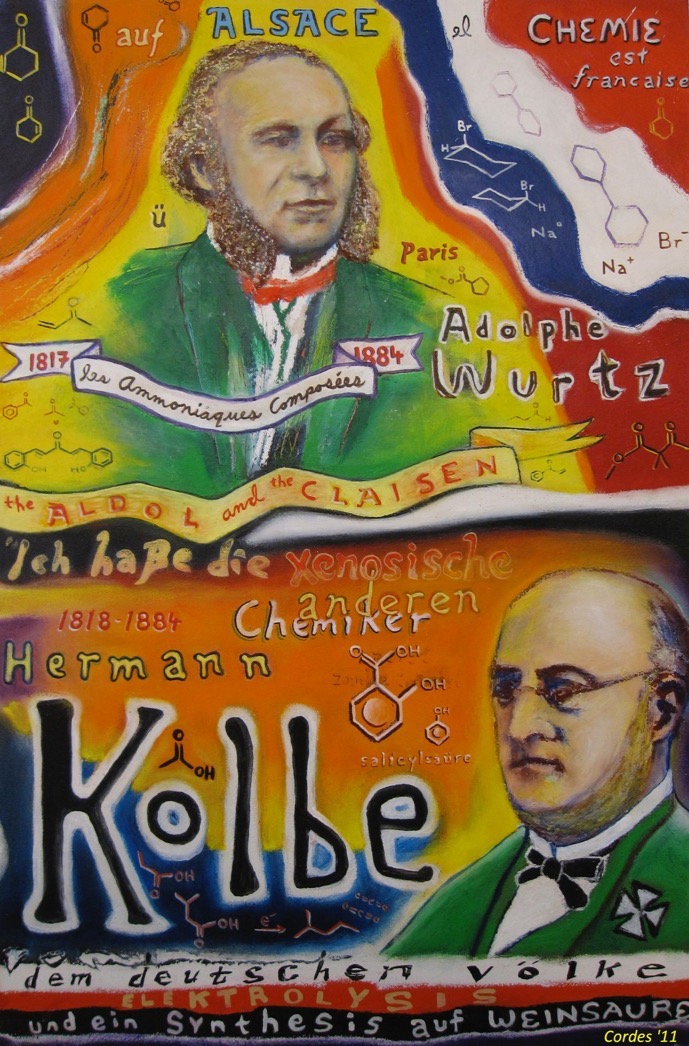Chemical Nationalism




Echoing old resentments and presaging a future of gross violence, many European chemists came to see their own chemical researches and intellectual ambitions in context of the emerging nationalistic and colonial aspirations of the great European powers. Perhaps no two chemists embodied the practice of chemistry as an exercise in national muscle-flexing as much as Adolphe Wurtz (1817-1884) of France and Hermann Kolbe (1818-1884) of Germany. Both were the sons of churchmen, but that did not stop them engaging in highly partisan and often very uncivil public arguments over French or German claims on chemical advances. In addition to his relentless attacks on any who disagreed with him, Kolbe has the added dark distinction of blatant anti-Semitism, going so far as to malign some of the greatest chemists of the age. Had they stayed out of the business of chemical chauvinism, both would still be justly famous for their own researches. Kolbe, though he never accepted the modern structural and type theories introduced by Gerhardt, was a fine chemist who made major breakthroughs in the chemistry of carboxylic acids, including the well-known Kolbe Electrolysis Reaction.
Wurtz was for many years the preemininent chemist in France and was responsible for a number of significant achievements such as the Wurtz Coupling Reaction and the Aldol condensation. He is also identified as the chemist principally associated with discovery of the nitrogen-based compounds known as amines.
